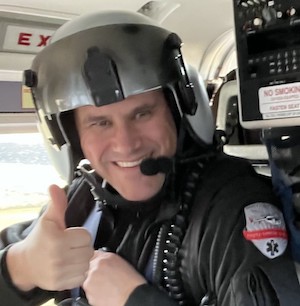
Continuing Medical Education (CME)

Emergency Medical Technicians (EMTs) can re-certify themselves by attending Continuing Medical Education sessions (CMEs) through Clarkson's Lewis School of Health & Life Sciences for free! The CME programs will take place virtually and/or at Clarkson Hall. Clarkson Hall is located at 59 Main Street, Potsdam, NY.
NYS State CMEs will be provided for attendees that attend in person or virtually. Food and beverages may be offered to those that attend in person.
Direct questions, comments or to be placed on our CME email list, please contact Douglas Wildermuth, 315-268-4444 or dwilderm@clarkson.edu.
CME Requirements:
- Attendees must be on time.
- Attendees must be engaged (with cameras on) the entire time.
- Names, email addresses, NYS EMT #'s, etc. must be provided.
Upcoming Presentations
Airway Management Start to Finish
Presented by Christopher Galton; MD, NRP, FP-C, FASA

January 21, 6:30 - 8:30 PM
Dr. Galton will be taking you from the initial assessment of a patient's airway all the way through the nuances of which RSI induction medications fit which patient situations effectively. He will be weaving patient cases throughout the presentation that represent a variety of EMS interactions. We will be covering concepts that are relevant for first responders to subspecialty critical care transport clinicians and everyone in between. The real question: can he fit it all into a two hour block?
Registration Required:
https://clarkson.zoom.us/meeting/register/uUXZMG17RImRYcWHmQC67w
